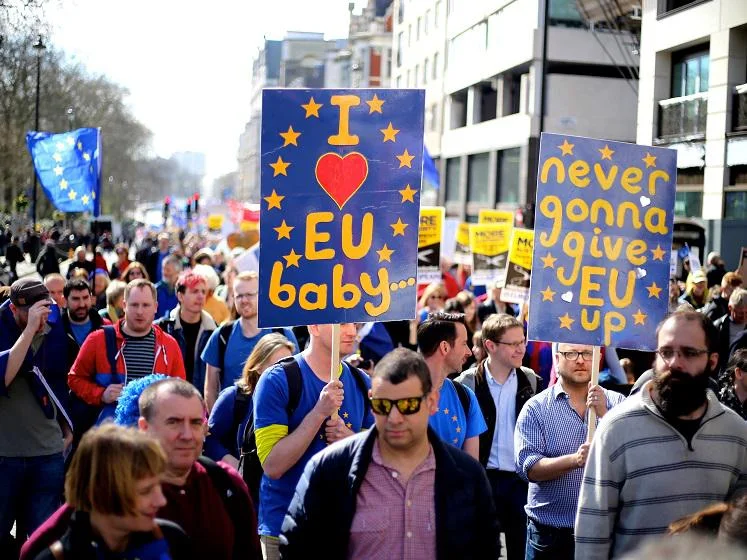Moment of youth

When Dr Sam Mejias started a project to study the attitudes of young people across Europe towards the EU, he did not expect the UK respondents to be amongst the most pro-European citizens.
But the June 2016 referendum on Britain’s membership of the EU transformed the political landscape, especially for the countries young, who voted overwhelmingly for to remain in the EU.
Dr Mejias, a Research Officer in the Department of Media and Communications, arrived at this conclusion following his extensive study comparing European identity across the continent in the year after Britain’s EU vote.
In addition to surveying 800 young people in the UK, Dr Mejias worked with partner institutions in the Czech Republic, Germany, Greece, Estonia, Italy, Portugal, and Sweden. In total, the project gathered data from almost 10,000 people under the age of 30.
The researchers asked a series of questions to discover young people’s political identification with their home nation and with Europe. From the responses, they developed five categories of identification: low or high level identification with Europe, low or high level identification with their home nation, and a combination of both.
Overall, the results challenged the stereotype of politically apathetic young people. Across different socio-economic groups, the respondents showed high levels of engagement and political identity.
But perhaps most surprisingly, the UK defied expectations that it would be among the most Eurosceptic of nations. Over 50 per cent of respondents expressed some kind of positive identification with the EU, making the nation one of the bloc’s strongest identifiers.
For Dr Mejias, one explanation lies in the timing of the work. The questionnaires were completed between November 2016 and March 2017, when the dust was still settling on the surprise EU referendum result.
He says: "A future that young people had taken for granted began to look very different. If anything, Brexit brought to the surface implicit and deeply held affinities to the EU. It certainly acted as a catalyst to young people thinking and talking differently about the EU."
"Young people were saying: ‘We thought there would be opportunities through Erasmus, and we’d be able to live and work abroad, but those have been taken away from us.’ They were also strongly rejecting the perception of the UK as a country where different cultures and nationalities are not welcome. "
The results highlight the chasm between British generations, with the EU vote adding to young people’s perception that the political system is rigged in favour of the affluent elderly, while family and housing support is cut and they are loaded with student debt.
Dr Mejias says: "The EU vote was mixed with young people’s domestic concerns, including education debt, housing, and employment. This was true across the country. And we were careful to reach different social groups; we still found these responses very common."
The project was part of the CATCH-EyoU Horizon 2020 programme, funded by the EU. One of the aims of the project is for the views of young people to be properly accounted for, both in the media and amongst the political class.
But Dr Mejias is sceptical about whether young people’s views will be taken seriously. "It is difficult to see how young people’s concerns will be fully satisfied; at best, they would probably support the softest of Brexits."
"But if before Brexit young people were not part of the policy conversation, why would that change now? In the current political climate, I’m not too optimistic that it will change. Young people only seem to be taken seriously by the media and political classes when their voting patterns might affect elections."
Dr Mejias feels that one silver lining to the Brexit result is the political energy the referendum has tapped into. Young people’s increased civic and political engagement could lead to sustained political pressure that eventually becomes impossible for politicians to ignore.
"One thing which is clear is that there has been very strong mobilisation by young people about Brexit. They are much more engaged, and aware of generational inequalities. Nobody knows where this will lead, so I want to remain optimistic."